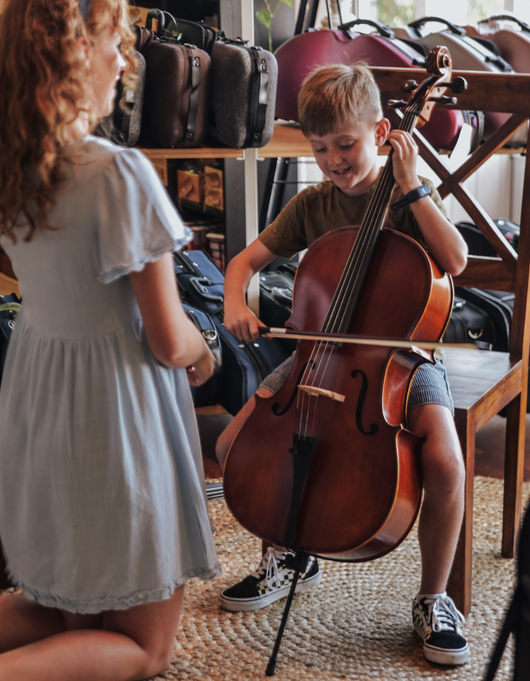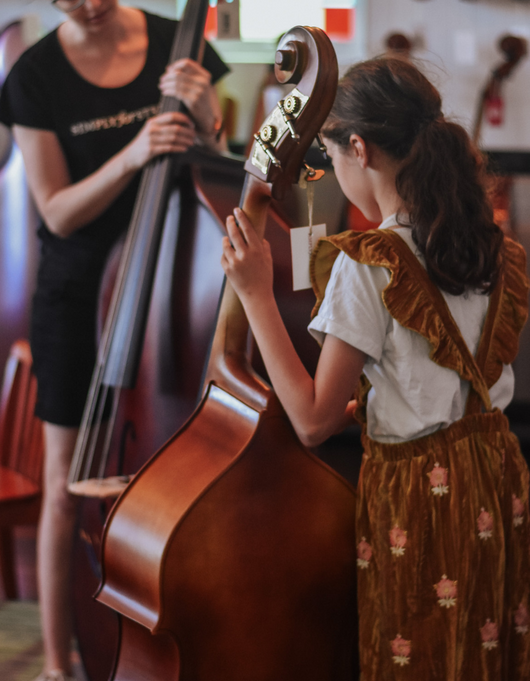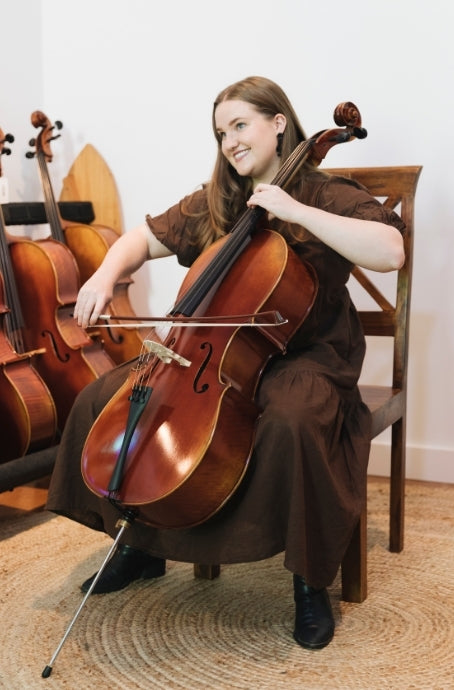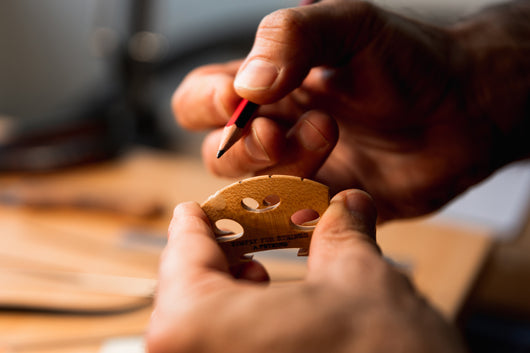Rosin: finding the perfect fit for your violin, viola, cello or double bass can be a little tricky. Simply for Strings have put together their no-nonsense guide to rosins, including some FAQs and our top recommendations.
What actually is rosin?
Rosin is a hardened tree sap. The resin is tapped like maple syrup from pine trees and is mixed with other ingredients before being cooked and poured into a mould.
Why is rosin needed?
Bow hair cannot actually create the friction needed to produce sound. The application of this sticky substance creates enough friction to cause the string to vibrate. Rosin makes bow hair stick to the string and pull it, which activates the string and produces sound.
How do I put rosin on my bow?
You don’t want to put too much rosin on the bow, or too little! In order for it to be just right, you must first tighten your bow, and then press the bow hair onto the rosin. Hold the rosin in your left hand, the bow in your right, and make several full-length bow strokes in both directions. The friction warms your rosin so it begins to stick onto the "ribbon" of hair. If you are a double bass player, your rosin is a lot more sticky. You only need to go in one direction with your rosin. We usually find 3-5 strokes are enough for a couple days of use. If your bow is brand new and hasn’t been rosined, you may need to do this a few more times!
How often do I put it on my bow?
If you are practising a lot, you may need to rosin your bow a little more often. If you start to notice the bow hair isn’t catching the string properly, you’re in need of some rosin! If you start to notice a scratchy, unpleasant sound, or you’re noticing a lot of dust on your instrument, you’re probably using a little bit too much! Generally speaking, if you use 3-5 strokes every few days, you’ll probably have enough rosin on your bow.
What’s this rosin dust all over my instrument?
If you’re using a little bit too much rosin on your bow, you’ll start to notice little white flecks of dust over the body of your instrument. You may need to stop rosining the bow for a couple of practise sessions, or just use a little bit less. Make sure to wipe it away with a soft cleaning cloth.
Do I need to clean the rosin off my instrument or bow?
You don’t need to clean the rosin off the bow hair – if you are regularly re-hairing your violin, viola, cello or double bass bow, there won’t be any rosin build-up to worry about. However, you definitely need to clean off your strings and instrument! We recommend using a soft microfibre cleaning cloth to do this job. Cleaning off the build-up makes sure your strings last longer, and that your instrument varnish isn’t affected. If your violin has a lot of rosin build-up, you may need to visit us in store to book a general cleaning service.
What’s the big deal with rosin?
String players can take years finding the right instrument. Likewise, tracking down a bow that suits you perfectly can be a life’s work. The quality of the sound is mostly dependent on the player’s ability – but good technique can only help so far if you're using unsuitable rosin. String players generally fall into two groups – devotees, for whom no price is too high and no effort too great in acquiring the perfect rosin, and those who prefer not to put too much thought into it. No matter what group you fall into, Simply for Strings has a rosin that will suit you and your instrument perfectly!
Choosing the best rosin for you can be daunting. There are a few things to keep in mind when picking out a rosin: the instrument, the strings, the bow and the style of the individual player. Rosins are available in dark and light varieties, soft and hard, and can even come flecked with gold!
What’s the difference between light and dark rosin?
Light rosins are often used more in high temperatures, for smooth playing solo or in chamber music. The light formulation is most popular for violin and viola players. The dark type is used more in low temperatures, in orchestra or for full-tone playing. The dark formulation is most popular for cellists and double bassists.
Should my rosin match my strings?
Some string companies make high-quality rosins that are specifically formulated to work in conjunction with their specific sets of strings. This is the easiest way to choose your rosin – if you know what strings you are using, you can match it up!
Rosin makes my hands itchy…am I allergic?
You can be allergic to rosin, but never fear! The Geipel rosin is recommended for any player who is struggling with itchy hands or eyes. Made in Germany, this rosin is promoted for its hypoallergenic properties; it contains no known allergens and is non-irritating. Geipel Anti Allergy rosin comes in a plastic container with a cloth cover.
What if I want to try something a little different?
If you want to try a different formula of rosin, there are plenty of high quality options available. Manufacturers such as Leatherwood, Melos, Bernardel and Cecilia have spent years perfecting their rosin formulas in order to get the best sound out of each instrument.
Below are some of our top rosin picks!
For the beginner violinist and violist: Hidersine Junior or Piranito Rosin. Both rosins are housed in plastic cases, and are suitable for all strings and instruments. They are not too expensive and are a great student option.
For the beginner cellist: Hidersine Deluxe Cello Rosin. Housed in a cardboard box, this rosin is suitable for all strings and cellos. The slightly softer formulation is perfect for student cellists.
For the beginner double bassist: Nyman Double Bass rosin is a great option, housed in a purple plastic box. Nice and sticky, it creates the perfect amount of friction between the strings and the bow.
For the intermediate violinist, violist or cellist: Bernardel Rosin for all instruments. Housed in a blue fabric case, it creates a smooth sound, and the perfect amount of friction between the strings and the bow for violinists, violists and even cellists!
If you are using Pirastro strings on your instrument, their range of rosins are definitely worth a try! Shop Pirastro Rosins.
For the intermediate, advanced or professional double bassist: If you’re after something a little more luxurious, the Pops Double Bass rosin, housed in a red plastic box is definitely the professionals’ choice. This sticky formulation is perfect for all players and instruments. Leatherwood Bespoke Rosin have released Leatherwood BASS Rosin and Leatherwood BASS Extra Rosin which are quickly becoming the player's preferred choice.
For the advancing violinist, violist, cellist or double bassist: Melos Rosin. This handmade rosin is perfect for any playing style, and comes in both light and dark formulations. The sound is smooth across all instruments, and is another professionals’ favourite. Advanced musicians can have exactly what they really need – a full, clear, high quality tone.
For the professional violinist, violist or cellist: If you’re wanting to try the next level of rosin formulations, we’d recommend trying something from the Larica range, or the Cecilia range. We are also an authorised stockist of the the internationally celebrated, Australian-made Leatherwood Bespoke Rosin.
Larica Rosin contains gold flecks – giving the rosin an especially balanced sound. The tone is full, harmonious, round, warm and clear. It gives any instrument a variety of colourful tones.
The Cecilia Rosins (formally Andrea Rosins) were first produced as Tartini Rosin in 2002 – and quickly become world-renowned. They were re-released in three formulations for each instrument – Solo, Orchestral and A Piacere. They have since released their specialised Sanctus blend, with two formulations inside the one cake. The Cecilia rosin range is designed to maximise projection and to get the most out of your instrument.
Leatherwood Bespoke Rosin is handmade in Orange, NSW using ethically-sourced mainly Australian products and cased in Australian timber. They produce handmade violin rosin, viola rosin cello rosin and double bass rosin. Rosin your bow with a custom recipe that is designed to enhance the sound and response of your string instrument, whether you play in a string quartet, string orchestra, symphony orchestra, chamber ensemble or solo playing. Optimise your string playing with a rosin personalised recipe to suit the characteristics of your instrument.
Want to learn how to use rosin? Check out our no-fuss video below
If you still can’t decide, make sure you visit us in store, or call us on 07 3368 3666.






























